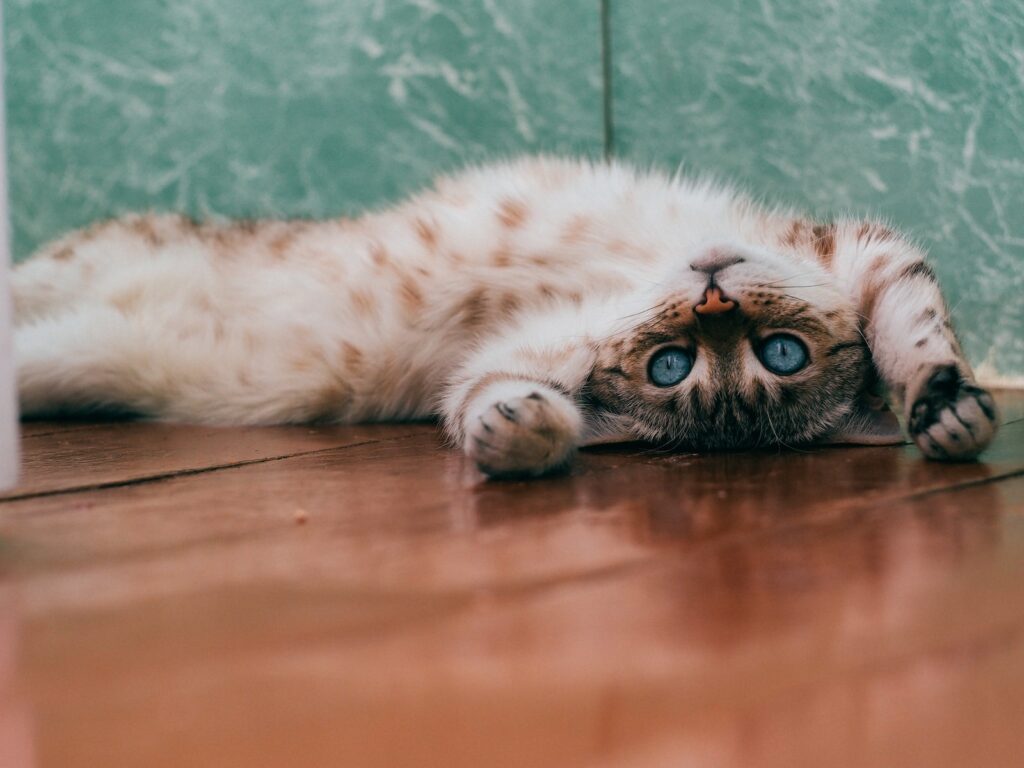Can Cats Eat Turkey? — Yes, They Can
Turkey is a delicious and nutritious food for cats. While cats are obligate carnivores and thrive on a diet primarily composed of meat, turkey can be a great addition to their menu. It provides a good source of lean protein that supports their muscle development and overall health. However, it is vital to ensure that the turkey is cooked thoroughly and free from any seasoning or additives that may be harmful to cats.
Can Kittens Eat Turkey?
Yes, kittens can eat turkey, but it must be introduced gradually and in small portions. Kittens have delicate digestive systems that are still developing, so sudden dietary changes can cause upset stomachs and diarrhea. It is recommended to consult with a veterinarian before including turkey in a kitten’s diet to ensure it aligns with their nutritional needs.
Things to consider when feeding turkey to kittens?
It is essential to remove any bones, skin, and excess fat from the turkey before feeding it to kittens. These parts can be a choking hazard or lead to digestive issues. Additionally, ensure that the turkey is thoroughly cooked and cut into small, manageable pieces to avoid any potential difficulties in chewing or swallowing.
Nutritional Benefits of Turkey for Cats — Why Turkey is Good for Cats?
Lean Protein Source
Turkey is an excellent source of lean protein for cats. Protein is a crucial component for their overall health, supporting the development and maintenance of strong muscles and tissues. Turkey provides cats with essential amino acids that contribute to their overall well-being.
Vitamins and Minerals
Turkey also contains essential vitamins and minerals that are beneficial for cats. It is particularly rich in vitamin B6, niacin, and selenium. These nutrients play vital roles in various bodily functions, including metabolism, immune system support, and the production of antioxidants.
Low in Fat
Turkey is a relatively low-fat protein option for cats, making it an ideal choice for those who need to watch their weight. The low-fat content helps prevent obesity and associated health issues, such as diabetes and joint problems.
Hydration Support
Turkey has a high moisture content, which can contribute to the overall hydration of cats. Adequate hydration is vital for their urinary tract health and can help prevent issues like urinary tract infections and crystal formation.
High in Taurine
Turkey is also a good source of taurine, an essential amino acid for cats. Taurine plays a crucial role in maintaining a healthy heart, eyesight, and reproductive system in felines.
Potential Allergies: Can Cats Be Allergic to Turkey?
While allergies to turkey are relatively rare in cats, it is still possible for them to develop sensitivities. If you notice any adverse reactions or symptoms after including turkey in your cat’s diet, such as vomiting, diarrhea, or skin irritations, it’s essential to consult with a veterinarian to determine if your cat has a turkey allergy.
Symptoms of Turkey Allergies in Cats
- Digestive Upset: Cats with turkey allergies may experience vomiting, diarrhea, or gastrointestinal discomfort.
- Skin Irritations: Allergic reactions to turkey can manifest in skin issues, such as itchiness, redness, and rashes.
- Respiratory Issues: In some cases, cats may exhibit respiratory symptoms like coughing, sneezing, or difficulty breathing.
What to Do If Your Cat Shows Symptoms?
- Consult a Veterinarian: If you suspect your cat has a turkey allergy, it’s important to seek professional advice from a veterinarian. They will be able to diagnose the allergy and provide appropriate guidance.
- Elimination Diet: Your veterinarian may recommend an elimination diet to identify the specific allergy triggers. This involves removing turkey and other potential allergens from your cat’s diet and gradually reintroducing them to pinpoint the culprit.
- Allergy Management: If your cat is diagnosed with a turkey allergy, your veterinarian may suggest alternative protein sources to ensure their nutritional needs are met without triggering allergic reactions.
Recommended Amount: How Much Turkey Can a Cat Consume?
When feeding your cat turkey, moderation is key. It should be offered as an occasional treat or as part of a balanced diet. As a general guideline, experts recommend that treats should not exceed 10% of a cat’s daily caloric intake. Consult with your veterinarian to determine the appropriate portion size for your cat based on their age, weight, and overall health.
Things to Consider When Feeding Turkey to Cats
It is crucial to ensure that the turkey given to cats is free from any seasoning, spices, or additives that may be harmful to them. Onions, garlic, and certain spices can be toxic to cats and should be avoided. Additionally, make sure to remove any bones, as they can cause choking hazards or injure your cat’s digestive system.
How to Feed Turkey to Cats: A Quick Guide
Introducing turkey to your cat’s diet can be a delightful and nutritious experience. Here’s a quick guide on how to do it:
Roasted Turkey Slices
Start by cooking boneless, skinless turkey breast. Once it’s cooked thoroughly, allow it to cool. Slice the turkey into thin strips, and offer small portions to your cat as an occasional treat.
Thanksgiving Turkey Medley
If you’re feeling creative, you can create a Thanksgiving-inspired meal for your cat. Combine small amounts of roasted turkey with steamed carrots and green beans, making sure to cut them into manageable pieces. This medley provides a balanced mix of protein and vegetables.
Turkey Broth
If your cat prefers liquid-based treats, consider making a turkey broth. Boil turkey meat with water, and let it simmer until flavorful. Strain the broth to remove any bones or solid pieces, and allow it to cool. Serve the broth as a refreshing and hydrating snack for your cat.
Conclusion
Turkey can be a healthy and enjoyable addition to a cat’s diet. It provides essential nutrients, including lean protein, vitamins, and minerals. However, it’s crucial to feed turkey to cats in moderation and ensure it is free from harmful additives or seasonings. Always consult with a veterinarian before making any significant changes to your cat’s diet, including introducing new foods like turkey.





